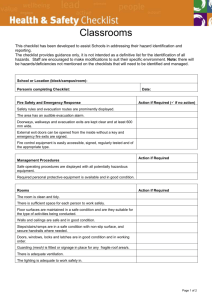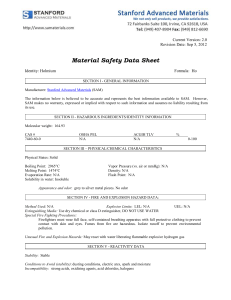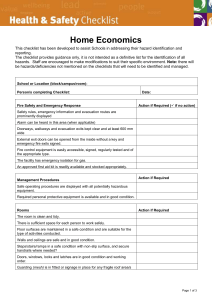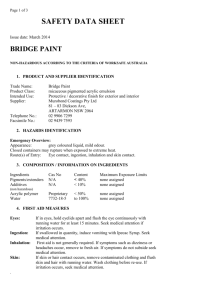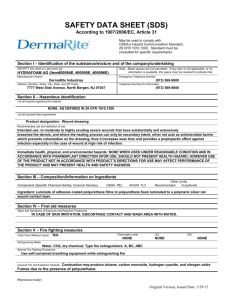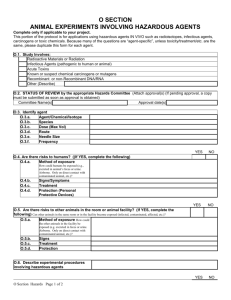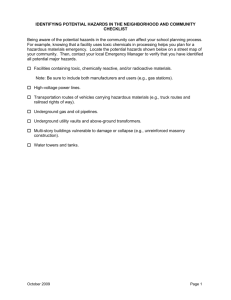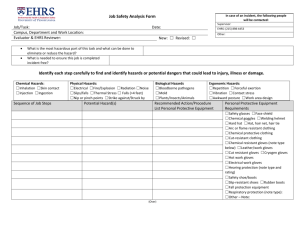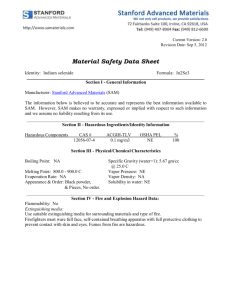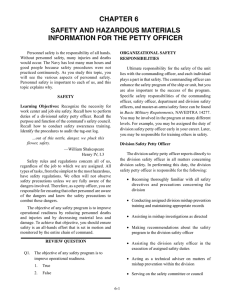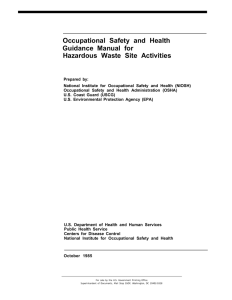Home Economics: Food and Nutrition
advertisement
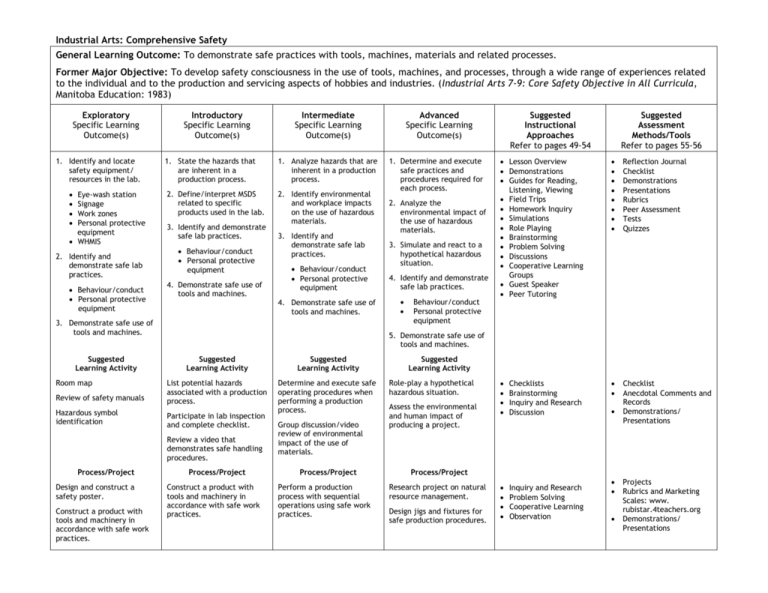
Industrial Arts: Comprehensive Safety General Learning Outcome: To demonstrate safe practices with tools, machines, materials and related processes. Former Major Objective: To develop safety consciousness in the use of tools, machines, and processes, through a wide range of experiences related to the individual and to the production and servicing aspects of hobbies and industries. (Industrial Arts 7-9: Core Safety Objective in All Curricula, Manitoba Education: 1983) Exploratory Specific Learning Outcome(s) 1. Identify and locate safety equipment/ resources in the lab. Eye-wash station Signage Work zones Personal protective equipment WHMIS 2. Identify and demonstrate safe lab practices. Behaviour/conduct Personal protective equipment Introductory Specific Learning Outcome(s) Intermediate Specific Learning Outcome(s) 1. State the hazards that are inherent in a production process. 1. Analyze hazards that are inherent in a production process. 2. Define/interpret MSDS related to specific products used in the lab. 2. Identify environmental and workplace impacts on the use of hazardous materials. 3. Identify and demonstrate safe lab practices. Behaviour/conduct Personal protective equipment 4. Demonstrate safe use of tools and machines. 3. Identify and demonstrate safe lab practices. Behaviour/conduct Personal protective equipment 4. Demonstrate safe use of tools and machines. 3. Demonstrate safe use of tools and machines. Suggested Learning Activity Suggested Learning Activity Review of safety manuals List potential hazards associated with a production process. Hazardous symbol identification Participate in lab inspection and complete checklist. Determine and execute safe operating procedures when performing a production process. Review a video that demonstrates safe handling procedures. Process/Project Design and construct a safety poster. Construct a product with tools and machinery in accordance with safe work practices. 1. Determine and execute safe practices and procedures required for each process. 2. Analyze the environmental impact of the use of hazardous materials. 3. Simulate and react to a hypothetical hazardous situation. 4. Identify and demonstrate safe lab practices. Behaviour/conduct Personal protective equipment Suggested Instructional Approaches Refer to pages 49-54 Suggested Assessment Methods/Tools Refer to pages 55-56 Lesson Overview Demonstrations Guides for Reading, Listening, Viewing Field Trips Homework Inquiry Simulations Role Playing Brainstorming Problem Solving Discussions Cooperative Learning Groups Guest Speaker Peer Tutoring Reflection Journal Checklist Demonstrations Presentations Rubrics Peer Assessment Tests Quizzes Checklists Brainstorming Inquiry and Research Discussion Checklist Anecdotal Comments and Records Demonstrations/ Presentations Inquiry and Research Problem Solving Cooperative Learning Observation 5. Demonstrate safe use of tools and machines. Suggested Learning Activity Room map Advanced Specific Learning Outcome(s) Process/Project Construct a product with tools and machinery in accordance with safe work practices. Group discussion/video review of environmental impact of the use of materials. Process/Project Perform a production process with sequential operations using safe work practices. Suggested Learning Activity Role-play a hypothetical hazardous situation. Assess the environmental and human impact of producing a project. Process/Project Research project on natural resource management. Design jigs and fixtures for safe production procedures. Projects Rubrics and Marketing Scales: www. rubistar.4teachers.org Demonstrations/ Presentations
